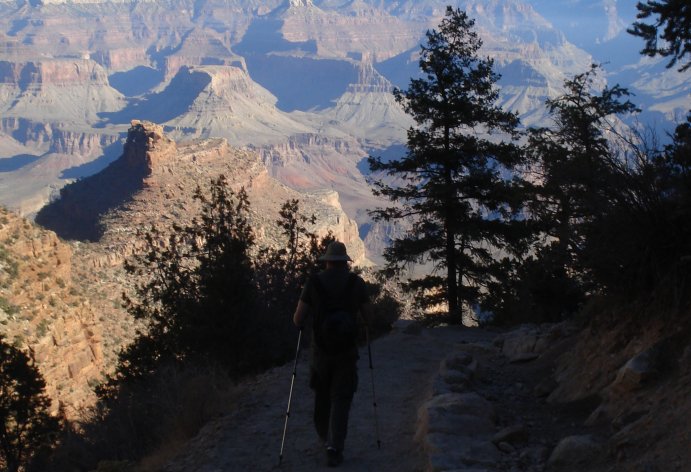
Some people don’t like to make the distinction between conservation & preservation. It is true that they overlap. Conservation is the one with the Teddy Roosevelt tradition. Conservationists indeed aim to preserve nature, but also recognize the special place humans will always have in it. Hunters are often great conservations, so are foresters and even loggers. These guys are rarely welcome at a meeting of true preservationists. Preservationists on the other hand can count among their ranks deep environmentalists, who sometimes believe that earth would be better off w/o humans, and animal rights activists, who sometimes put the “rights” of the beasts above the needs of humans.
Deep environmentalism has all the attractions of a religion. Its strongest adherents resemble puritans in many ways, but there is no redemption for them or the human race. Of course, this is an extreme view held by fringe people, but the pure preservationist ideal infects many in the environmental movement & even more casual adherents often see preservation as the true religion.
I am agnostic about this, but I don’t believe in intelligent design. That means that there is nothing humans can do that will “destroy” nature because “nature” is only a human concept. In the billions of year of earth history before human consciousness developed, plants and animals lived and died w/o consequence. When MOST of the world’s species died out at the end of the Paleozoic era, it didn’t make a bit of difference. The disappearance of the dinosaurs was mourned by nobody until the modern kids found out about the great extinction and called it a tragedy.
I was happy to read the most recent Nature Conservancy Magazine. In an article entitled, “Beyond Man vs. Nature”, the Conservancy’s chief scientist explains that biodiversity and/or simple preservation should not be top goals. “The ultimate goal,” he says, “is better management of nature for human benefit.” Follow the links if you want the details. Suffice to say, everything in the article makes sense to me.
Of course, there are places we choose to preserve mostly untouched. I have visited the Grand Canyon four times. It still fills me with awe. We should preserve the Grand Canyon for future generations. Let me modify that. We should conserve the place. I enjoyed the Canyon by walking to the bottom on trails carved out by human hands. I drove up there on roads build by men and machines. W/o those human improvements, the Canyon would be as inaccessible to me as the mountains of the moon and as meaningful as some great canyon that might exist on Venus or Mars.
We are humans. We can understand the world only with our human intelligence and perceptions. What gives nature meaning and what allows us to get meaning from nature is the interaction of us with it. An old epistemological conundrum asks, “If a tree falls in the woods, and nobody hears it, does it make a sound?” It is an insoluble problem unless you add more detail. If you are talking about the sound waves that our human ears interpret as sound, a tree falling in the woods certainly does this. But a sound also requires interpretation. If nobody is there to hear it, all we have is physical phenomenon.
My guess is that preservationists would generally say it makes a sound, even if nobody hears it. A conservationist like me might be a little more human-centric and say that it does not. For me, sixty million years of dinosaur history had no meaning until it was discovered by human consciousness.
I have written on many occasions that sustainable and natural are overlapping contexts, but they are not the same and that sustainable, in both natural and human influenced system doesn’t mean something that last forever. Nothing lasts forever. Sustainable just means a system that goes a long time adapting to continuous change. A good conservation strategy strives for a healthy human population interacting with a healthy environment. We don’t have to keep our human hands off, in fact we probably should not leave very much of anything untouched. Human interaction does not always profane nature; the interaction done right can ennoble both.
Conservation is a higher order activity compared with mere preservation, which is an abdication of responsibility in the guise of wisdom. Conservation demands that you apply intelligence and ecological factors to sustaining a system that works for man and beast. We humans live in this world. If/when there is a world w/o us, it really doesn’t matter anymore. As long as we are here, however, it is our job to do things right.
